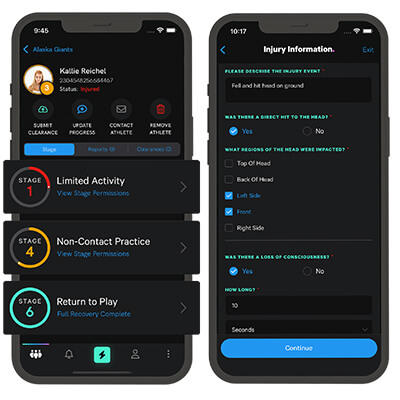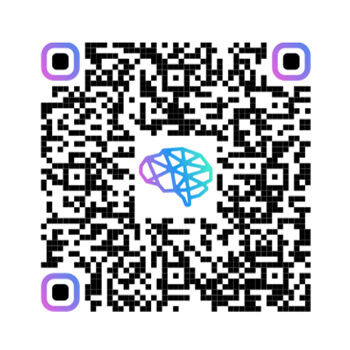Concussion Treatment in Waterloo
 A concussion is a mild traumatic brain injury (TBI) that occurs when the brain is shaken inside the skull. It can result from a direct hit to the head or even a strong impact to the body. You don’t need to lose consciousness to have a concussion, and symptoms may appear immediately or develop over the next 24-72 hours.
A concussion is a mild traumatic brain injury (TBI) that occurs when the brain is shaken inside the skull. It can result from a direct hit to the head or even a strong impact to the body. You don’t need to lose consciousness to have a concussion, and symptoms may appear immediately or develop over the next 24-72 hours.
Some of the most common signs include:
- Headaches, dizziness, or sensitivity to light or noise
- Neck pain, fatigue, irritability, or “foggy” thinking
- Difficulty concentrating or changes in mood
We understand how important it is to return to school, work, and play safely. Our team offers careful assessment and step-by-step guidance to help you move forward with confidence.
Why Concussions Happen
Concussions can affect anyone—from athletes and students to parents and older adults. They often occur from sports or recreational impacts, falls at home or in the workplace, or motor vehicle collisions, such as whiplash. In some cases, repeated smaller bumps to the head add up over time and lead to symptoms. Because a concussion can involve not only the brain but also the neck, balance, and vision systems, a thorough evaluation is essential.
How We Support Concussion Recovery
Your first visit is focused on listening to your story, ruling out red flags, and creating a clear plan that reflects your needs. Our assessments look at neck mobility, balance and vestibular function, visual tracking, and overall symptom severity.
- Gradual return-to-learn, work, and activity plans
- Gentle spinal care and mobility strategies to reduce neck-related headaches
- Soft-tissue therapies to ease muscle tension
- Vestibular and oculomotor exercises to support balance and vision
- Light, guided aerobic activity to encourage recovery
- When appropriate, medical acupuncture for pain and calming overactive pathways
- Collaboration with coaches, teachers, employers, and physicians to ensure everyone is on the same page
Our goal is to create a supportive approach that helps you feel safe, reassured, and encouraged every step of the way.
What to Expect
Most people notice a meaningful improvement within the first one to three weeks, provided the right plan is in place. For those with longer-lasting symptoms, targeted neck, vestibular, and exertion-based strategies can help move recovery forward while keeping activities safe and manageable.
Frequently Asked Questions
Do concussions always get better on their own?
What types of care are available?
When should I see a professional?
Any suspected concussion should be assessed promptly. Seek urgent medical attention if you experience severe headache, repeated vomiting, worsening confusion, seizures, or sudden neurological changes.
Support Every Step With the
Concussion Tracker App
Our care extends beyond in-person visits. The free Concussion Tracker app lets you monitor symptoms, track progress, and communicate directly with our team in real-time. This easy-to-use tool lets you stay informed and supported throughout your recovery process.


Take the First Step Toward Recovery
If you or a loved one may have a concussion, we’re here to provide support and a clear recovery plan. Book an appointment with Dearborn Health in Waterloo today.


